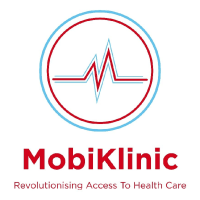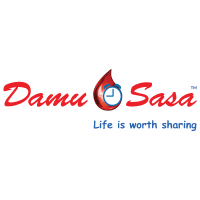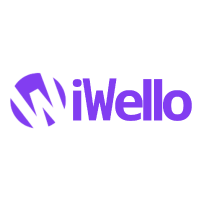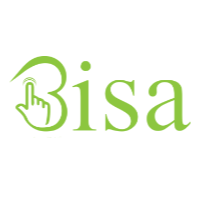Access to quality healthcare is a huge challenge in many sub-Saharan African (SSA) countries with over 20% of SSA’s population living more than two hours away from a health centre. This issue is made worse by the rising cost of health care and levels of poverty. As a result, remote SSA communities resort to herbal remedies or self-medicate because they cannot afford the transport cost to reach health centres or pay for quality health services.
In SSA, an estimated 408.6 million people, or almost 30% of the region’s total, do not have access to healthcare. At 58% and 51% respectively, Somalia and Chad have the highest rates of lack of access to healthcare in SSA while at 13%, South Africa has the lowest rate.
From a global perspective, Africa’s healthcare services are well below par. Of the world’s 57 countries with low numbers of healthcare workers, 36 of these are in Africa according to the World Health Organization. For every 1,000 people, there are 0.21 doctors despite the fact that the continent with just 1.3% of healthcare workers carries 25% of the global disease burden.
Enter digital technology
Unequal access to healthcare in SSA has inspired the development of digital technology innovations that are ‘disrupting’ the sector. Innovators both within and outside the healthcare sector have been developing digital tools integrated with phones to facilitate healthcare services provided by doctors, nurses, and community health workers. These digital technology tools have been distributed across the entire health care value chain. Against the backdrop of this digital boom, McKinsey & Company revealed research results showing that digital health tools could increase efficiency in African health systems by up to 15% by 2030.
Examples of healthcare digital tools in SSA
 MobiKlinic App-Uganda
MobiKlinic App-Uganda
Growing up, Andrew Ddembe witnessed the health access inequity between urban and rural Uganda with many medics preferring to work in urban regions where they could earn more money than in rural regions. With people living in rural areas walking on average 12 kilometres to reach the nearest health centre, he was inspired to start a digital technology start-up called MobiKlinic in 2019 to connect rural community health workers (CHWs) with medics at the nearest health centre using a smartphone. The CHWs could also use the knowledge contained within the smartphone app to remotely handle health emergencies while waiting for an ambulance to arrive. Through this app, over 40,000 Ugandans have accessed health care services.
 Damu Sasa-Kenya
Damu Sasa-Kenya
Damu Sasa is a crowdsourcing digital technology platform co-founded by Francis Kilemi and Aaron Ogunde after they witnessed the lack of blood donations in the wake of the 21 September 2013 terror attack in Nairobi, Kenya. The platform enables hospitals to quickly source safe blood types among themselves during emergencies including accident victims or mothers giving birth. The hospitals registered on the platform share information in real-time about the blood type needed for patients. The platform has over 43,000 registered blood donors and over 10,000 medical professionals use it. So far, over 180 Kenyan hospitals have used the platform to quickly source safe blood supplies around the country with over 34,000 lives having been saved in Kenya through Damu Sasa.
 iWello-Nigeria
iWello-Nigeria
Adejonwo Ismail founded iWello, a technology start-up, in July 2021 to provide affordable healthcare services for less than a dollar to those on a low income in Nigeria. Through this digital platform, patients can consult with doctors for as little as 300 Naira ($0.21) using video calls and digital medical records. The platform provides the options to have free treatments while others have to be paid for but iWello pays for this in advance after which the patient repays the fee in installments. Malaria, diabetes and hypertension are among the diseases for which medics offer consultations through the iWello digital platform.
 Bisa Health App- Ghana
Bisa Health App- Ghana
Bisa Health is a smartphone application that allows Android and iPhone users to consult with medics remotely. Ghanaian founders, Raindolf Owusu and Mansa Williams, developed this in 2014 to help those living far from health centres and for those with diseases that attract stigma to access quality health services. By allowing patients to virtually consult with medics, the application helps to reduce physical queues in health centres and offers a good level of privacy. Over 234,879 questions from the public have been answered by medics registered on the platform which has since expanded its services to Senegal. The average response rate for questions is 48 hours.
The way forward for digitized healthcare in SSA
Although digital technology is positively disrupting SSA’s health sector, there remain challenges that plague its rollout. By 2021, 85% of funding for healthcare startups in Africa was concentrated in Nigeria, Kenya and South Africa. These digital technology health start-ups also heavily rely on donor funding to operate as they do not generate income so therefore when the funding is cut, some close their operations. This is why innovators in this space in SSA should think beyond donor funding, and create digital healthcare start-ups that are able to generate income by offering other services. In this way, they will be able to continue to operate in the long term without leaving gaps in the communities to which they provide health care services.
Although many challenges still plague the healthcare sector in SSA, the adoption of digital technology is showing promise for the future.
“In 2030, widespread adoption could unlock $400 million to $2.5 billion in Kenya, $700 million to $3.3 billion in Nigeria, and $1.9 billion to $11 billion in South Africa,” the report by McKinsey & Company notes, adding that the funds could be reinvested within the health care value chain.

